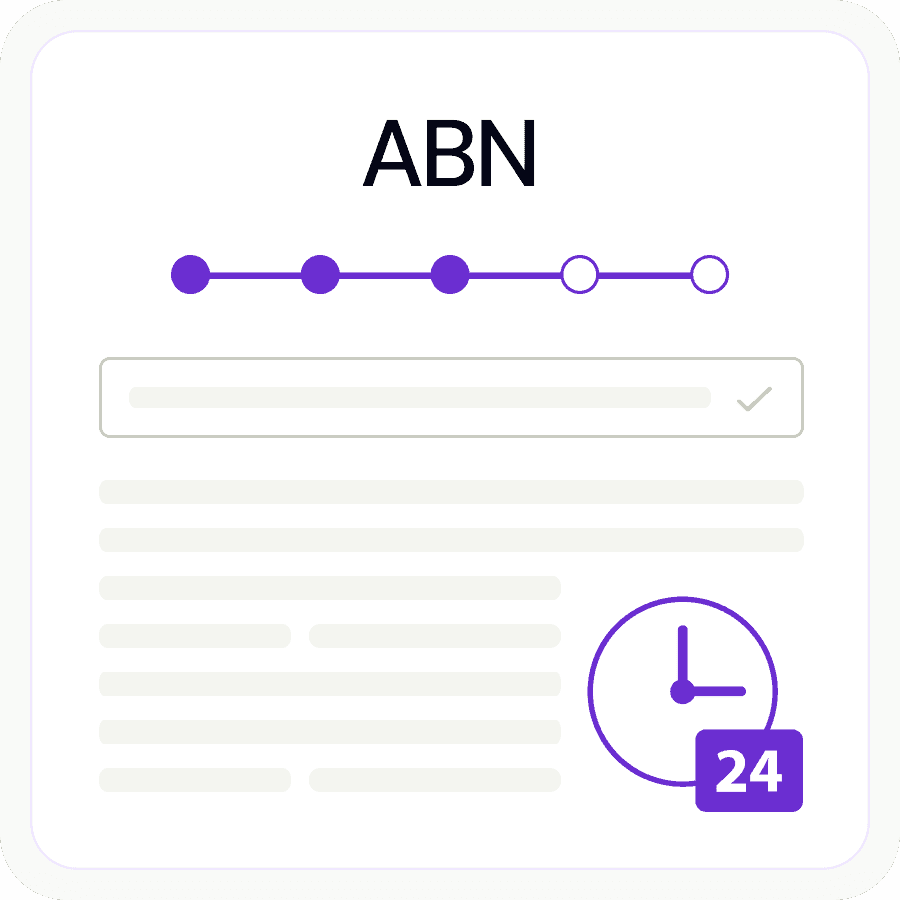Most business owners are aware that they need to provide customers with invoices. However, what can be unclear is whether these invoices need to include the ABN of the business or the company providing the services. In this article, we’ll explain when you need to include your ABN on your invoices, so you don’t accidentally put a foot wrong with the ATO.
The importance of your Australian Business Number (ABN)
Your ABN is as important to your business as its name (if not more important). Your ABN is the unique number that identifies your business. An ABN can be found on virtually all important business documents – and it’s imperative that you have one.
The importance of invoicing
Invoicing is part of the requirement for a business to maintain complete and accurate records of its activities (including sales). The ATO specifies that a record must contain all of the relevant information necessary to identify your tax obligations. Importantly, the ATO may even request that you show them these records to check you are complying with your tax obligations. A business would quote their ABN on these invoices so that tax won’t be withheld from you (See ‘Do you need an ABN to Invoice?’ below). Broadly, there are two kinds of business invoices: standard invoices and tax invoices. Non-GST-registered businesses provide standard invoices. These invoices do not include a tax component. GST-registered businesses provide tax invoices. These invoices include a tax component to allow GST-registered consumers to claim tax credits for their purchases.
When to provide an invoice
According to ATO guidelines, a tax invoice needs to be provided to a consumer where:
- The amount of the invoice is greater than $82.50; and
- A customer requests an invoice (which must be provided within 28 days).
What must the invoice include?
The tax invoice you provide to your customer must include the following:
- That the document is a tax invoice
- The identity of the seller
- The ABN of the seller
- The date
- Descriptions of the items sold to the customer
- GST details
Additionally, if the sale is for more than $1000, the tax invoice needs to include the buyer’s identity or ABN.
Do You Need an ABN to Invoice?
If the invoice is made in the course of an activity that is of a private or domestic nature, then you do not need an ABN to invoice.
However, if you are invoicing a business and you don’t include an ABN on your invoices then the business must withhold 47% from any payment they make to you and send the withheld amount to the Australian Taxation Office. You need an ABN if you invoice businesses.
However, you don’t have to withhold payments if any of the following apply:
- Your supplier does not carry on business in Australia and cannot obtain an ABN
- The total payment you make to the supplier is $75 or less, excluding goods and services tax (GST)
- The supplier is an individual under 18 years of age and your payments to that person are $350 or less each week
- The agent through whom the goods were supplied quotes their ABN
- Under GST, the items supplied are wholly input-taxed
- The entire payment you make is exempt income for the supplier
- The supplier is not an enterprise because they have no reasonable expectation of profit or gain
See the ATO website for more information.
In most cases, you will need to have an ABN to provide invoices to your customers. Specifically, if you issue a tax invoice and it does not include an ABN, it will not be valid. As such, you will have to issue another tax invoice with your ABN to ensure that you are complying with your tax obligations. If you continue to supply invoices that do not have the proper details, you may face serious penalties from the ATO. If you are unsure as to what obligations apply, consult with a Business Taxation Lawyer.








